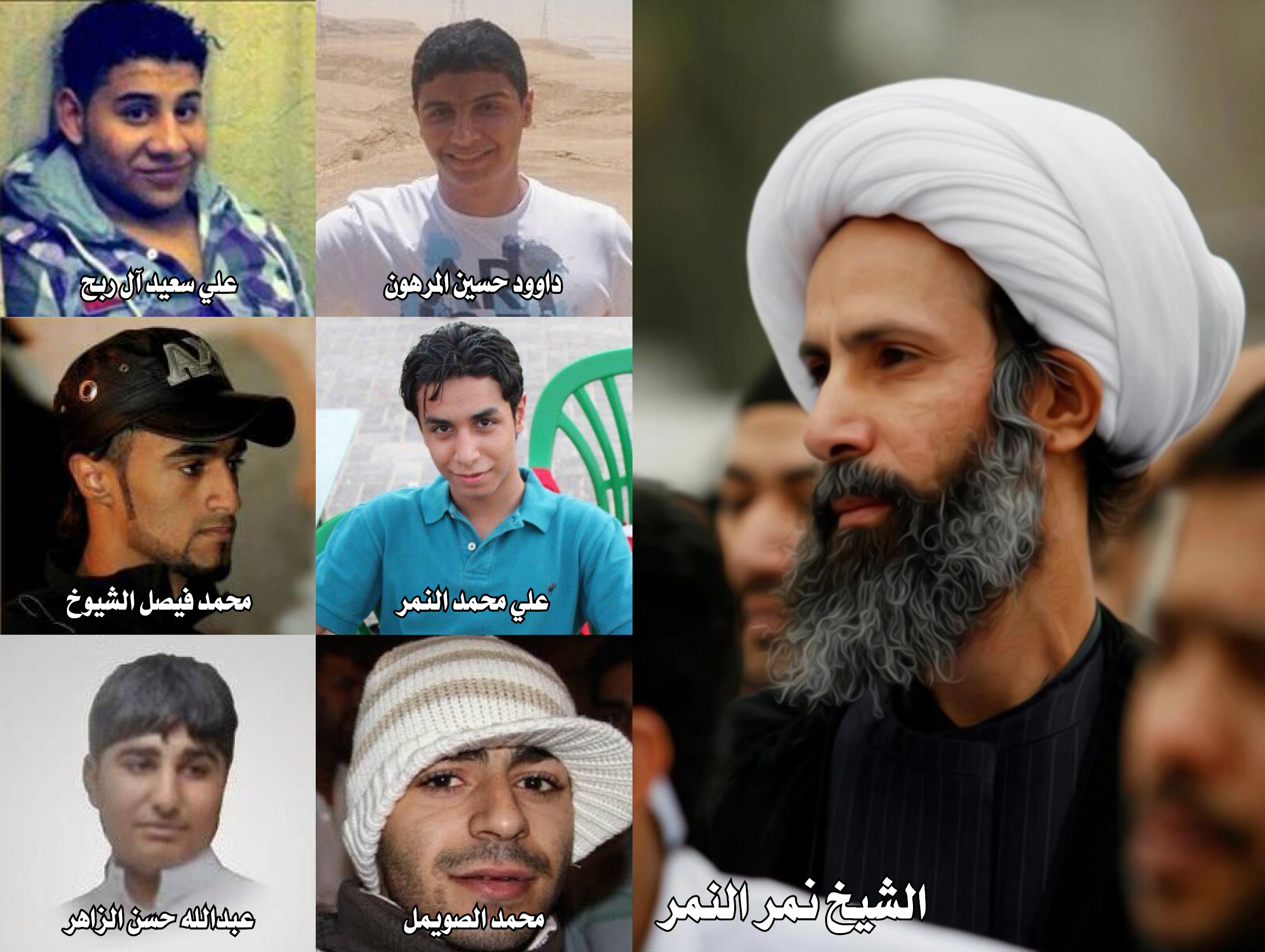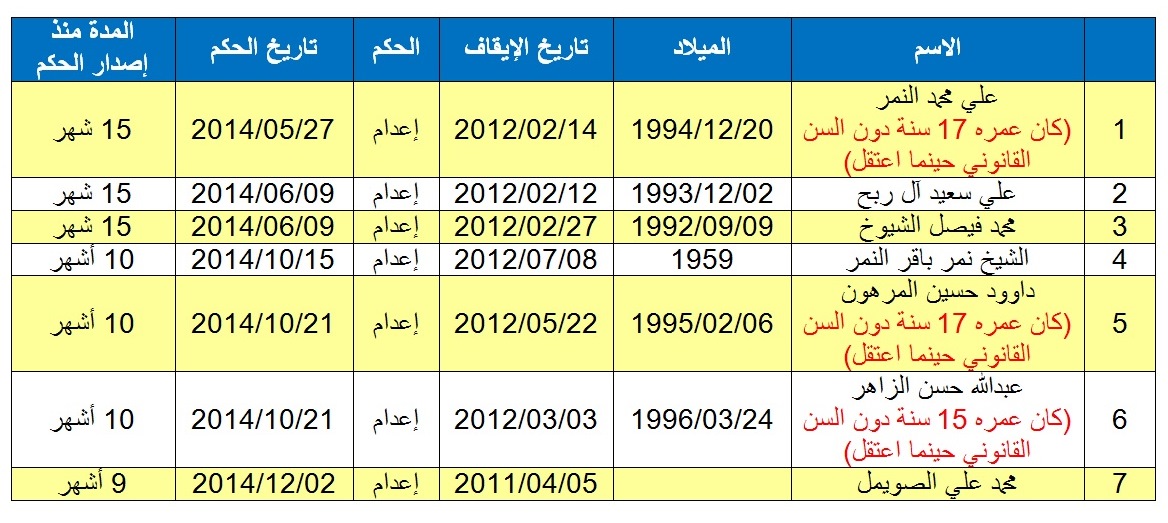
The Saudi European Organization for Human Rights (ESOHR) express their deep concern regarding the fate of seven individuals on death row in Saudi Arabia, whosecharges are related to the demonstration that began in Saudi Arabia in February 2011. The trials of these seven are subject to due process concerns as many conditions that guarantee a fair trial were absent.
The Saudi judiciary has issued death sentence judgements for the following individuals: Sheikh NimrBaqir al-Nimr, AliSaeed Al-rebeh, Mohammed Faisal al-shyookh, DawoodHussien Al-marhoon, Abed allahhassan al Zaher, Ali Mohammad Al nimrand Mohammad Al-somwaeal. Additionally they also issued death sentence to Ali Abdullah Alotal , and RadaJafarAlrebeh , however, after an appeal their sentence was reduced to a 25 year prison term in March 2015.
These Death judgments came after an unfair trial, which did not meet the international standards adopted by the United Nations. In fact, the judgements were based on confessions extracted under torture whichconstitutes a violation of Article 15 of the Convention against Torture, which Saudi Arabia joined in 1997 (Each State Party shall not invoke any judgment which is established to have been made as a result of torture as evidence in any proceedings).
The severity of the judgment received ( by the nine defendants do not correlate with the charges against them, and do not warrant issuance of the death penalty or 25 years in prison. Furthermore, there are no international laws authorizing the death penalty in relation to these charges, particularly when the extracted confessions were extracted under torture and duress.

Also, the Saudi justice system has violated Saudi Arabia’s commitment to the Convention on the Rights of the Child, which includes an absolute prohibition of the death penalty for any offense committed under the age of 18 through the verdicts of Ali Mohammad Al-Nimr, DawoodHussien Al-Marhoon and Abedallah al zaher, all of whom were under 18 at the time of arrest.
ESOHR is deeply concerned for the safety and lives of the seven convicted individuals, which were issued with a lack of due process during the trials, and would like to stress the illegal nature of their unfair judgments. ESOHR calls for a re-trial in accordance with international principles of fair trial and demands accountability for the perpetrators and those in charge of incidents of torture that took place during both the arrest, detention and trial period.
ESOHR emphasizes that the long trial period that these individuals were subjected to, both pre-judgement and post-judgment, constitute a violation of: Civil and Political Rights, the International Covenant, where in the fourteenth article it asserts that the trials which are unnecessarily delayed contravene the principle of a fair trial. In fact, in some cases it took 15 months to issue of verdict of the death penalty.
According to the basis of Article III of the Universal Declaration of Human Rights, which states that: (Everyone has the right to life, liberty and security of person), ESOHR Saudi calls on the United Nations, and the international community to immediately intervene to protect those individuals who have been sentenced to death, and who have all undergone unfair trials. Therefore we appeal to the international community for the following:
1. Condemnation of the death sentences in trials that do not conform to international standards, particularly for trials based on confessions that were extracted under torture and duress.
2. Demand that the Saudi government drop politically motivated sentences and unconditionally release all political prisoners.
3. The immediate suspension of the use of torture in detention centers, especially in Saudi Arabia General Directorate of Investigations prison,where prisoners of conscience are dealt with.
4. Ask the Saudi government to punish those responsible for all cases of torture carried out in detention centers in Saudi Arabia, whether through they are directly or indirectly responsible in terms of giving orders, supervision, or ignoring the incidents of torture.
5. Urge the Saudi government to take into account it’s responsibility towards the Convention against Torture and implement its commitments to the international covenants it has signed.
6. Allow the Special Rapporteur of the United Nations, the Special Rapporteur on torture and other cruel, inhuman or degrading punishment, which submitted a request to visit Saudi Arabia three times (2006, 2007 and 22/12/2010) to do so. To date, they have not allowed such a visit. They must allow such an urgent visit to Saudi prisons to investigate complaints and allegations about torture.
